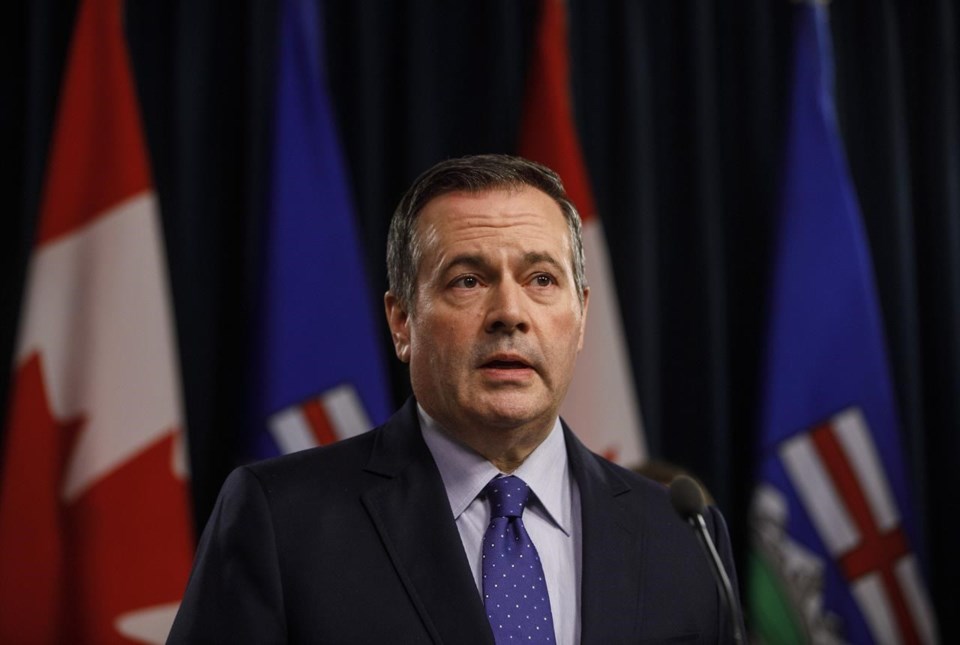EDMONTON — More than 800 Alberta doctors have signed an open letter asking the government to delay its proposed health-care restructuring and allow physicians to focus on the COVID-19 pandemic.
The changes, which are to take effect Wednesday, include cancelling a master agreement with the Alberta Medical Association. The association has said that will mean the province can raise or lower doctors' billing fees without consultation.
The doctors said in the letter that those changes could have a detrimental effect on patients and health care.
"COVID-19 is spreading like a wildfire in this province," said the letter, which was signed by 846 physicians. "We are a strong and trusted team who require necessary resources to help us put out this fire.
"We oppose this government's implementation of harmful actions targeted towards our public health-care system."
Health Minister Tyler Shandro wasn't available for an interview, but he said in an emailed statement that the government will provide whatever resources are needed to protect Albertans during the pandemic.
"We expect spending on physician services and health care overall to increase significantly this year," said the statement.
Shandro said he's working with the medical association to come to a solution on the master agreement.
"My door is open to any concrete, specific proposal to support physicians and patients in the emergency and going forward," said his statement.
Total physician compensation remains flat at $5.4 billion in the 2020-21 budget, but the medical association has said the changes to fees, particularly involving patients with complex needs, could force some doctors' offices to close.
Dr. Shazma Mithani, who signed and helped to compile the letter, said the health system is already going through an unprecedented time with the COVID-19 pandemic.
"Our main focus should really be on our patients and caring for our patients, not about these changes that are going to potentially bring instability to our health-care system and our ability to care for our patients," she said in an interview.
Mithani, who works in the emergency departments at both the Royal Alexandra Hospital and Stollery Children's Hospital in Edmonton, said doctors were concerned about the changes prior to the pandemic.
One of the 11 changes, which was related to how family doctors were paid for in-person visits, was already put on hold by the government earlier this month. The province also introduced a new billing code for phone or video visits with family doctors that is retroactive to March 17, Alberta Health said.
But Mithani noted that the province is still going ahead with other changes, which include how both rural physicians and doctors who work in hospitals can bill.
"We don't even know what those changes are going to be yet," she said. "We are going to still, of course, come to work on April 1st and put our patients first, but without knowing what resources we have available."
She said there are also concerns about what's known as the good faith claim, which gives people in the most marginalized populations access to public health care — even if they don't have a health card.
"They are no longer going to have funding," said Mithani.
At the Royal Alexandra, which is an inner city hospital, Mithani said she sees a lot of patients who are homeless.
"We will continue to see these patients, because that's our first priority, but we are no longer going to be appropriately resourced to see them anymore."
Doctors have been vocal with their concerns about the changes since the province announced that it was cancelling the agreement.
Opposition health critic David Shepherd said any changes now could cause chaos in the health system.
"I think the government needs to take this very seriously," he said Monday. "This is not the time to be making such a massive transformation in our primary care system."
Mithani added that there will be a better time to deal with the proposed changes.
"We'd just like to put things on pause until we can get through this pandemic ... and then we can start talking about how we can continue to improve our health-care system."
This report by The Canadian Press was first published March 30, 2020
— With files from Dean Bennett
Colette Derworiz, The Canadian Press


